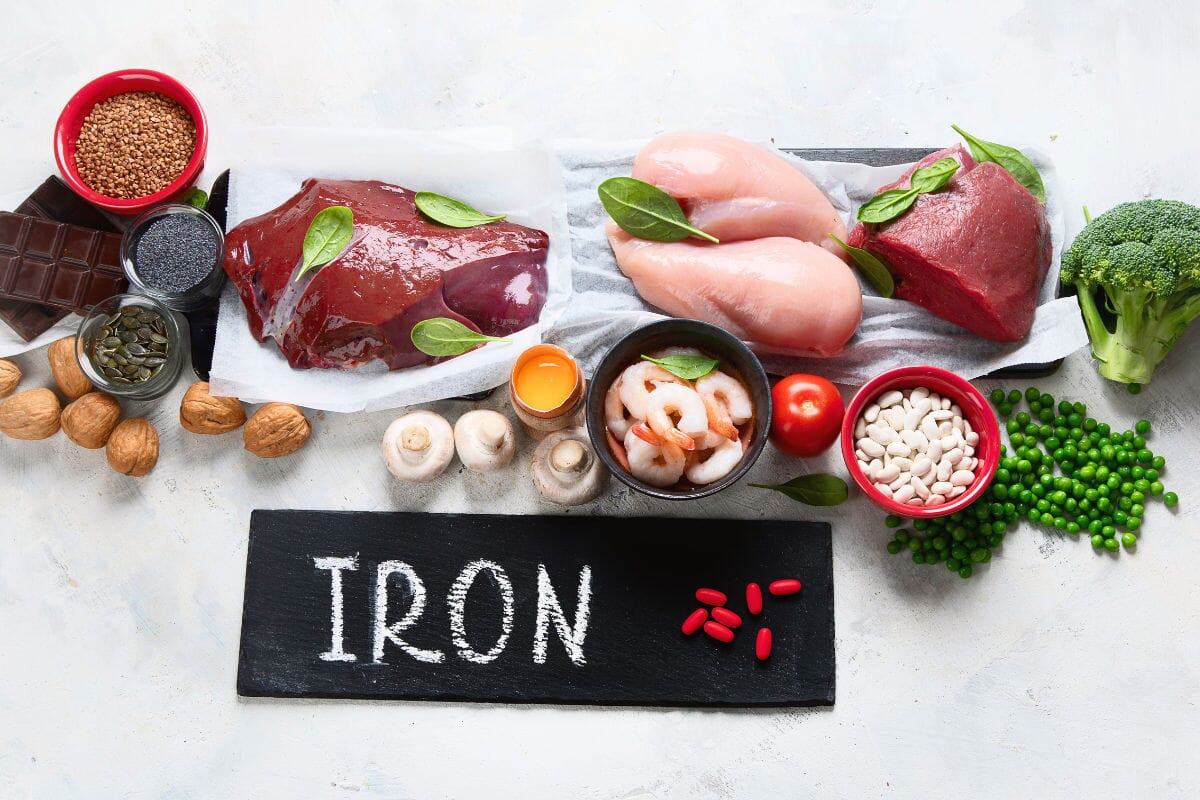Your Cart is Empty
FREE SHIPPING OVER $45 & RETURNLESS REFUNDS

Today, I want to chat about something that might not be the first thing on your mind but is crucial for all of us in our golden years – iron!
Now, I'm not talking about pumping iron at the gym. I'm talking about keeping our joints and muscles happy. And though you might not think about it, iron does play a key role in that.
Well, iron helps our bodies function smoothly. It helps in the production of hemoglobin, the stuff that carries oxygen to our muscles. When iron levels are low, oxygen delivery to the muscles is compromised, and they start sending out distress signals in the form of discomfort and stiffness.
As we age, our iron levels might take a bit of a dip, and that can contribute to even more joint and muscle discomfort. It's like the oil in your car – you don't notice it until it's not there, and suddenly everything starts squeaking.
As we age, a few factors can lead to a dip in our iron levels, and this can have a direct impact on our joints and muscles.
Dietary Changes: As we age, our eating habits might evolve. Sometimes, unintentionally, we end up consuming less iron-rich foods. Maybe those leafy greens and lean meats aren't as frequent guests on our plates as they used to be.
Decreased Absorption: Our bodies become a bit pickier about what they absorb efficiently as we age. The absorption of non-heme iron (found in plant-based foods) can be especially impacted.
Gastrointestinal Issues: Some of us might face gastrointestinal challenges as we get older. Conditions like celiac disease or gastritis can interfere with the absorption of iron.
Medications: If you're on certain medications, they could be the iron thieves. Some drugs can affect iron absorption or increase iron loss. Always a good idea to have a chat with your healthcare provider about the potential impact of your medications.
Chronic Diseases: Certain chronic conditions, like inflammatory disorders or kidney disease, can throw a wrench into the iron absorption machinery.
Blood Loss: Ladies, this one's for you. Menstrual cycles can contribute to iron loss over the years. If you've been a trooper enduring the monthly cycle for several decades, it might have an impact on your iron levels.
Don't Forget the Basics: Sometimes, it's the basics that slip our minds. Are you drinking enough water? Dehydration can affect the concentration of minerals in our blood, including iron.
Now, let's talk about how to naturally boost our iron levels. I'm all about keeping it natural because who needs fancy supplements when Mother Nature has got our back?
Leafy Greens: Popeye was onto something with his spinach obsession. Leafy greens like spinach, kale, and Swiss chard are packed with iron. Toss them in a salad, blend them in a smoothie – just get them on your plate!
Lean Meats: If you're a meat lover like me, lean meats such as chicken and turkey are excellent sources of heme iron, the type of iron that's more easily absorbed by our bodies. Fire up that grill and enjoy!
Beans and Legumes: Beans, lentils, and chickpeas are not just for the vegetarians out there. They're rich in non-heme iron and fiber, a double win for your joints and muscles.
Fortified Foods: Check out your cereal boxes and bread – some are fortified with iron. It's like a sneaky way to get that extra boost without even thinking about it.
Vitamin C-Rich Foods: Vitamin C enhances iron absorption, so load up on oranges, strawberries, and bell peppers.
Now, I know some of you might be thinking, "But Brandon, how do I know if I need more iron?" Well, my friends, it's always good to chat with your doctor and get those blood tests done. They'll give you the lowdown on your iron levels and guide you on the best approach for your unique needs.
Remember, my friends, it's not about a sudden iron overload. It's about incorporating these iron-rich foods into your daily routine. And always consult with your healthcare provider if you have any concerns.
What are your thoughts? Share with us on Facebook, Twitter, or Instagram!
Let me know what topics you're interested in, and I'll do my best to include them in future blogs! Email me at info@toneshealth.com